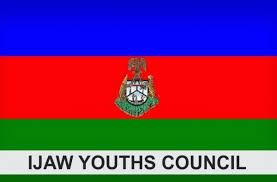News
You’ve failed us, Nigerians tell outgoing lawmakers

Few weeks from today, Nigerians will be electing lawmakers from their various constituencies. Some of the lawmakers are seeking reelection while some are fresh faces. But how have our legislators fared in the last four years? Have they really concerned themselves with the general interests of their constituents? What has been the quality of their representation?
Nigerians, in this report, passed their verdict on how their elected representatives have performed in the last four years.
The Chairman of the Christian Association of Nigeria ( CAN) Kaduna State Chapter, Rev Joseph John Hayab, said, “in many of our states, people have forgotten that we have the House of Assembly because they simply do only what the governor asks them to do. They have forgotten their constituents. Some of them have just started visiting their people because elections are around the corner.
“Gone are the days when Nigerians will celebrate and mention the names of many lawmakers from different parts of the country in the National Assembly, but go to the street and ask people now, I am not sure Nigerians know even the principal officers.
After signing every budget our president will say the lawmakers padded the budget and we hardly hear them clarify or debunk the allegation.
“It is unfortunate but one has to say that the quality of representation of many of the current legislators is nothing to celebrate. Some among them have become comedians just to entertain people but do less about law-making.”
Elder statesman and immediate past Secretary General of the Arewa Consultative Forum ( ACF), Mr Anthony Sani said, “the quality of representations of the current legislators is a reflection of what obtains in the polity. That is to say, all aspects of our national life are having challenges.
That is why there is no difference in performance between the current legislators and the past legislators. Many of the legislators are ‘I second the motion’, precisely because nobody bothers about their contributions in legislative functions. And the reasons are not far-fetched. The electorate do not hold the legislators accountable for their core roles of making laws for the peaceful, socioeconomic development of their constituencies and of the nation. Rather, they are rated on constituency projects and for how many motorcycles they distribute and how many bags of rice they can distribute to the electorate. If voters can tolerate vote buying, then it is hard for them to hold the legislators accountable.
“And unless the politics is properly rewired and voters have a realistic appreciation of the roles of legislators to make laws, the quality of our legislators would not improve. Unless our sense of justice is re-engineered, our multiparty democracy would not be managed for performance. That is why I always call for cultural Renaissance in the polity.”
According to Co-Convener of Embasara Foundation, an Ijaw Think Tank for good governance, Barrister Iniruo Wills, “we have neither state nor national assemblies. With literally one or two exceptions, we have no legislative representatives at both state and national levels. Like most of their predecessors, the outing of the current legislators has been disgraceful. In the abysmal absence of civic consciousness on the part of the citizenry, we can only pray for God to touch their hearts to improve their quality of representation and lawmaking.”
For Comrade Morris Alagoa, former CLO Secretary, Bayelsa State, “apart from the unacceptable usurpation of Executive function of financially empowering few individuals in their constituencies and executing minor projects like street lighting and community concrete roads or walkways; there is a big question mark as to how effective they have been in law-making in the interest of constituents.
Approving state and federal budgets with a view to having constituency projects allotted to them is not what legislators ought to be doing. Establishing educational institutions without corresponding efforts to create employment is not also good.
We should see people-oriented laws enacted to provide social security for a certain categories of people; especially the aged and unemployed. There should be radical laws enabling the federal, state and local governments to build houses and make them affordable for the people at owner-occupier basis. Water should be a right and should be provided.
Legislators should concern themselves with lawmaking and exercise their checks and balances responsibility, not project executors. By their oversight function, they should be able to check whether the executive is applying the budget as presented and approved. Legislators also have the power to impeach the President, Governor or local government chairperson.
They should remain within their lane as representatives of the people in government.”
In his own opinion, Mr Tari Solomon, a journalist/tutor said: “We don’t have an assembly. We have a union of executive and legislative arms of government. A union doesn’t have checks and balances. That desired quality in representation of the assembly members is below average. We need an assembly that will not only speak for the people but also take action on behalf of the people.”
Joseph Ambakederimo, Convener, South-South Reawakening Group said: “The performance of the lawmakers could be described as abysmal, inept and below the table ratings. Many of them have little or no idea what law-making is all about and what it should be for a democratic system of government. To some of them, they want to get elected by any means necessary just to belong to the elite class in society.
Many of them have refused to develop and give themselves up for serious future engagement to provide service to the people of their constituency. There has not been critical engagement between the lawmakers and their constituency largely because, first, they don’t know how to engage with their constituents for a robust exchange that would even enrich their own output going forward. Then our leadership recruitment system has been judged to be faulty, therefore we always find ourselves in a cul-de-sac of inept leadership at the Federal and state lawmaking level.”
Alambo Datonye, a media practitioner in his submission said: “For me, the legislators have not done enough in terms of law-making for the good governance of the country and welfare of citizens.
The quality of representation has been poor. There is a huge disconnect between them and their constituents. I can’t remember any instance in which the lawmakers returned home to organize Town Hall meetings or engage in any consultations on critical issues affecting the people they represent. Their constituents don’t see them often. They are not accessible except during election periods.
Rather than focus on their legislative jobs and checkmating the Executive at the Federal, State and Local Government levels, they have actually connived with political officeholders in the executive to wreck the nation by padding budgets for their own benefits and awarding contracts to themselves. The result is massive poverty, a collapsed economy and compromised democratic culture.”
Mr Francis Dufugha, publisher of Niger Delta Herald newspaper said: “My candid opinion is that the lawmakers in all tiers of government have failed to make an impact with their legislative assignments ranging from allegations of corruption and ineptitude. The people should be intentional in the election of a new set of lawmakers.”
Deborah Segun (a student), said, “I strongly believe that most of the National Assembly members from Benue state have done well. Aside from one or two of them the others have served well and deserve commendation. The three Senators from the state have done creditably well and about nine of the House of Representatives members have so far done well.
However, the State Assembly members have not lived up to the expectations by my assessment. You can hardly lay finger on anything you can credit to them apart from the passage of the budget and some executive bills.
So, on the strength of that, I will say that they have not done well and most of them do not deserve to be reelected to the House.
Kasimu Afolayan, an auto mechanic said, “I am not impressed with the National Assembly members who watched the Executive arm initiate policies that have left the country bleeding. How can our National Assembly members allow the Executive to borrow continually to the point of mortgaging the future of our children yet unborn? No doubt they did well in some areas in the course of their duties but the truth must be told, the present National Assembly is like a rubber stamp and they failed woefully to check the excesses of the Executive arm and that is why the Nigerian economy is in this sorry state.
As for the State Assembly members in Benue state, they are largely quiet apart from some Executive bills that they passed, I do not feel that they performed above average. It is as if they are not in existence. Though the Executive always had its bills passed and to that extent they were doing their job.
John Shandon, a Journalist, said “our legislators have not lived to our expectations. A good number of them feel that they go there to make money so they forget to give the people good representation. They are supposed to check the activities of the Executive but they are not doing that. Look at the economic situation in the country. Prices of good and services are out of the reach of the ordinary man. What have they done to get this country working again?
Take a look at the security situation. They are not doing anything to help and ensure that the country enjoys peace and security and they are not bothered about that. They rather expend energy on scrambling for constituency projects from where they would make money. As far as I am concerned the State and National Assembly members have failed to represent their constituents, they are rather representing themselves.
An Ijaw elder and publisher of Environmentwatch, Deacon Braeyi Ekiye identified the system and lack of moral fibre as the cause of the poor performance of the nation’s legislators. He said: “The lawmakers, like other political leaders, operate under a skewed and anti-people constitution.
Therefore, their performance bond cannot be dictated by a system that presents them as masters rather than as servants of the state and to the people. In this circumstance, they see themselves as overlords, totally oblivious of their sacred responsibilities to the people and their environment. They, therefore, act in manners that are contrary to good governance and effective service delivery.
“Part of this unfortunate situation is the total lack of strong institutions of state and a committed civil society, including a vibrant and independent press that can check the excesses of legislators and their unholy romance with the executive. Added to this is the clear demonstration of a lack of capacity and capability and vision arising from the process of selection by political parties leading to elective positions.
“These parties are mainly concerned with choosing and electing ‘politicians’ who see their positions as a gateway to self-enrichment and other self-seeking purposes. So, the right choices are seldom made, which leads to indolence, lack of creativity and excellence, dishonesty, crookedness and ‘evil’ service rather than ‘civil’ service, for a productive and efficient legislative service delivery. What we need to do is to change this unworkable system of governance, this unacceptable selective process of positions for political elective offices and we should have the will to address the issue of lack of moral character, especially in our polity and the society in general.
The Chairman, Christian Association of Nigeria, Abia State, Apostle Emmanuel Agonmuo, argued that members of the ninth National Assembly as well as their counterparts in the state Houses of Assembly have performed abysmally low.
He scored them low, saying they have not left behind any enduring legacy to be remembered for.
According to the cleric, the lawmakers are more or fewer rubber stamps and are only after the “sharing of money” instead of engaging in quality legislative business.
“Members of the ninth National Assembly including state Houses of Assembly members, have not done anything visible. There is no effect on their performance in the states. You cannot point at any tangible thing they have done. They don’t deserve any passing mark. What have they achieved? They are a total failure. They only go there to share money.”
Similarly, a Professor of Political Science at the Abia State University, Professor Hartz Ofoeze, said that the 9th National Assembly as well as the current state lawmakers have failed woefully.
His words: “The 9th NASS is a woeful failure. You know how much debt Nigeria is now owing because whenever the President presented any letter for foreign loans they will just approve without the necessary questions. They never asked the right questions to checkmate executive excesses.
The only thing we can say they achieved was the new Electoral Act which of course, was started by the 8th Assembly. The reason President Buhari did not sign it then was because he would not have won his second tenure with the new law in place. His performance in his first tenure was so bad that virtually everybody wanted to get rid of him. So, the current NASS is a woeful failure. They have failed Nigerians. They couldn’t write their names in gold.
-

 News6 days ago
News6 days agoIYC decries arrests, harassment of Ijaw people demands whereabouts, offence of NRM Gov’ship candidate, Jackrich.
-

 Health5 days ago
Health5 days agoNAFDAC recalls popular cough syrup, causing acute kidney disease in children
-

 Politics5 days ago
Politics5 days agoOdili Pronounces Fubara Political Leader Of Rivers State
-

 News2 days ago
News2 days agoEFCC slams Edu, Farouq, Shehu, says N32.7bn, $445,000 recovered from humanitarian ministry
-

 Crime1 day ago
Crime1 day agoOyo State Police Mentions Names Of Who Invaded Oyo Sate Secretariat
-

 Politics1 day ago
Politics1 day agoWork On Akaba-Okodi Road Impressive, Says Gov Diri
-

 Politics5 days ago
Politics5 days agoAttempts to pitch Tinubu against Wike won’t work – Woke
-

 News4 days ago
News4 days agoAbducted ChannelsTV reporter regains freedom




















